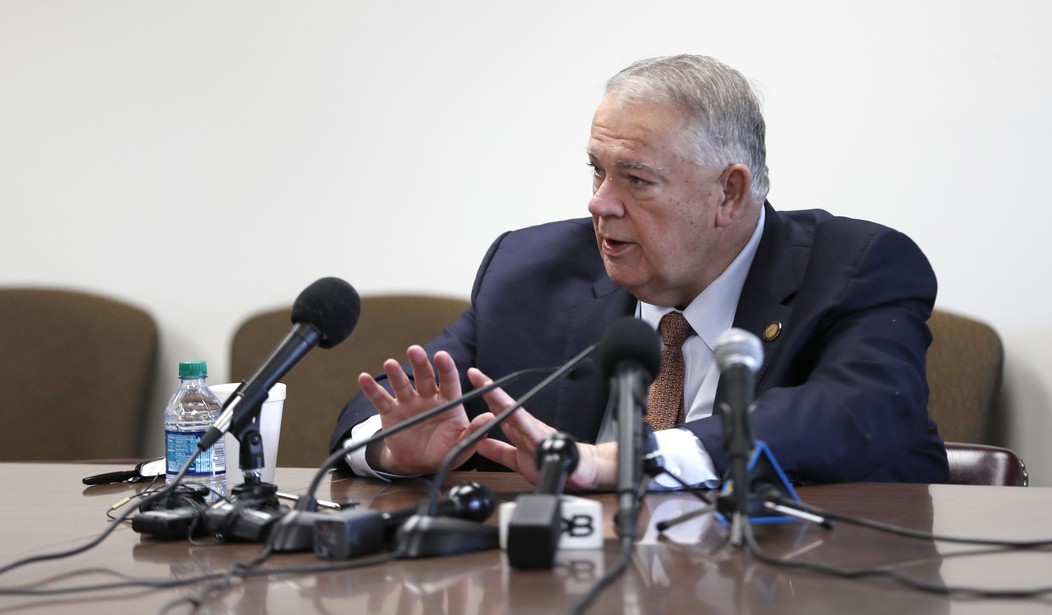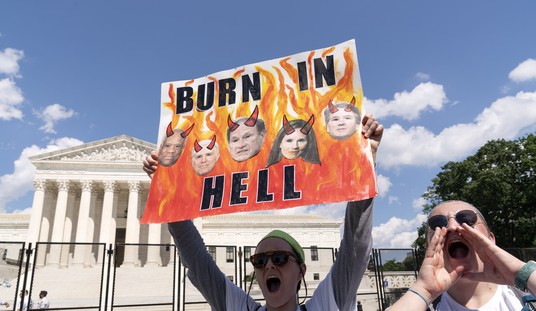Newly elected Georgia House Speaker David Ralston urged his fellow lawmakers to stick to job-creation legislation last Monday as he and his fellow legislators took office.
The Republican wants to avoid putting Georgia back in the national spotlight because of a fight over religious liberty proposals. He doesn’t want to see a repeat of the nation’s biggest businesses threatening to boycott Georgia like they did in 2016.
But that is just the fight — and the light — that freshman Rep. Ginny Ehrhart wants.
“I’m a Republican, what do you think?” Ehrhart told the Marietta Daily Journal.
“I don’t think it’s an issue of discrimination if you’re asking an individual to violate their religious beliefs,” Ehrhart added. “I just think it’s apples and oranges, not the same thing. I’m not condoning discrimination. However, I feel it’s important that we protect those people and to not pressure, persecute or litigate them for expressing their freedom of religion.”
During his successful 2018 campaign, Georgia’s new governor, Republican Brian Kemp, said he would not back down from his promise to support religious liberty legislation.
Former Republican state Sen. Josh McKoon said the week after the November election that Kemp’s victory should mean a win for religious freedom advocates like himself.
“He’s been a Republican his whole life,” McKoon said. “Charlie Brown is finally going to get to kick the football. This is finally going to happen.”
However, Kemp said in August that he’d veto any religious liberty bill that goes beyond what’s been federal law for close to 25 years, the Religious Freedom Restoration Act. Legislation McKoon introduced in 2015 mirrored that federal legislation.
“It’s time to do that, put that behind us so we can move on. It’s the same bill Nathan Deal voted on when he was in Congress,” Kemp said during an address to hospitality and tourism industry executives. “That’s all I’m committing to doing. Anything else, I’ll veto it.”
But even that scares House Speaker Ralston. He remembers how companies like Apple, Disney and Time Warner, along with the NFL and NCAA, threatened to boycott Georgia because of legislation that then-Gov. Nathan Deal eventually vetoed in 2016.
PJM reported at the time the Atlanta business community was afraid of becoming the next Indiana.
Ralston doesn’t want to go there again. He said to the AP that even legislation mirroring the federal Religious Freedom Restoration Act that President Bill Clinton signed in 1993, which Kemp endorsed, “has a real potential to divide us as a state.”
“It’s a much different world than it was in 1993,” Ralston added.
Ralston also told reporters Jan. 10 he doesn’t think there’s enough support among Republicans to win approval for religious liberty legislation.
“I’m on record as being very concerned that that is a solution in search of a problem,” Ralston said. “I’m even more concerned that it’s the kind of issue that divides the state.”
“I would just ask us to pause before we get into an issue that has the potential to tear at the fabric of the state,” he added.
Deal voted for the federal RFFA as a member of Congress in 1993. The former governor told Atlanta Magazine a couple of days before leaving office that he’s still glad he vetoed Georgia’s religious liberty legislation in 2016.
“When you’re passing legislation that is somewhat punitive in nature, who are you mad at? Who are you trying to punish? Why are you trying to punish them? I felt like it wasn’t necessary. It was gonna do damage to the fabric of our state. And we’re bigger people than that,” Deal said.
CNHI Deputy National Editor Jim Zachary wrote in the Valdosta Daily Times that Ralston is correct. Georgia, Zachary believes, should be worried about the prospect of even a debate over religious liberty legislation.
“Georgia touts its success in wooing and incubating the film industry, the NFL’s Super Bowl and numerous other large corporations that could easily bail on Georgia investments because of grandstanding, pandering religious liberty legislation,” Zachary wrote.
“If a vocal group of lawmakers push this through this session,” Zachary warned, “they may be left having to explain to thousands of Georgians why they no longer have jobs and why the state’s economy may never fully recover from their ideological campaign.”
However, the Atlanta Journal-Constitution reported leaders of eight social conservative groups said the decision by Amazon to put one of its new headquarters in Virginia and a logistics hub in Tennessee show the fallacy of Zachary’s argument.
Both of the states have laws very similar to what Rep. Ehrhart and Sen. McKoon are pushing. So, the Georgia religious conservatives said, “Amazon’s announcement will finally put to rest the bogus argument that passing [such legislation] will drive away business.”
This story was updated on 1/22/19








Join the conversation as a VIP Member